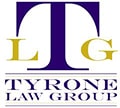Estate planning establishes how one’s assets will be protected, managed, and dispersed after death. It is the key to ensuring your loved one’s financial well-being is intact even in your absence. With a little foresight and creative thinking, you can ensure that your legacy lasts as long as you want. Wondering how to go about it?
Let’s look at estate planning tips from estate planning lawyer to help you sketch your family’s financial security on a more enduring canvas.
Consider your assets and manage your wealth.
The initial step in estate planning is to inventory all of your assets. Assuming you do this early on, it will tell you where you stand in accomplishing your financial and lifestyle goals and what you want to leave to your family.
With this clarity, you can make the necessary modifications that will help you achieve your objectives. Adjustments will involve, among other things, reassessing your investment portfolio to optimize the amount of risk and return, structuring retirement assets to decrease longevity risks, and ensuring that you have the appropriate level of insurance.
Insurance policies, for example, that do not provide appropriate coverage might deplete your assets and leave you and your family vulnerable.
You should consider your needs carefully and seek advice on which plans and protection are appropriate for you and your family.
Make provisions
While you manage your fortune to leave a financial legacy to your family, you must also make plans to disperse this wealth to the individuals and organizations you care about.
Making a will and establishing a trust are two examples of such provisions that you can make. These will offer you a say in how your assets are allocated after your death and influence how your wealth is preserved.
A will: A will directs the division of your possessions after your death and can name guardians for minor children. It’s essential for effective estate planning; everyone over 18 should have one.
This is one of the less expensive estate planning contracts, and it helps to prevent heirs from disagreeing about your legacy. It must be signed, dated, and attested by two people who are not related.
A trust: A trust allows you to have a third party hold and manage your assets. Its primary goal is to defend the beneficiaries’ interests. You can utilize trusts to specify how and when your assets will be used and distributed during and after your demise.
For example, you can create a trust that states that funds can only be used to fund your heirs’ education, home purchase, retirement accounts, or entrepreneurial endeavors, among other things.
This helps to prevent or limit the mismanagement of your resources and increases the possibility that your wealth will be passed down through generations. The establishment of trusts may also result in tax advantages. To understand these advantages, consult an attorney and a tax counselor.
Regularly update your estate plan.
Life is dynamic, and circumstances shift over time. It is critical to routinely review and amend your estate plan to reflect any changes in your financial status, family dynamics, or regulatory laws.
Births, deaths, marriages, divorces, or major acquisitions should inspire you to revisit your estate plan to ensure its correctness and alignment with your objectives.
This involves amending wills, changing insurance policy beneficiaries as needed, etc. Being proactive and adaptable lets you keep your estate plan effective and relevant for the next generation.
Once your estate plan has been revised, you must convey your wishes to your loved ones and essential individuals involved, such as family members, beneficiaries, and appointed beneficiaries.
Discuss your desires, the location of crucial documents, and any changes you have made to avoid confusion or disagreements.
Estate planning is a never-ending process. Remember to revisit your estate plan regularly, such as every few years or when major life events occur. Regularly revising your plan ensures that it is up to date and reflects your changing circumstances and desires.
As you make the updates, you should remember that estate planning can be complicated, and rules differ by jurisdiction. Working with skilled professionals, such as estate planning attorneys and tax consultants, ensures your estate plan is legally legitimate, appropriately reflects your goals, and fulfills your needs.
Gift the estate
Giving assets to family members while you are still living can be an excellent way to lower your estate’s size and reduce taxes.
When gifting the estate, consider the long-term consequences of transferring ownership. Consider property maintenance, insurance, property taxes, and the recipient’s ability and willingness to take on these obligations.
Communicate your objectives and expectations to the recipient of the gifted property clearly and concisely. Discuss prospective duties, such as limitations on selling or using the property for certain purposes.
Follow the correct legal processes to transfer the recipient’s title and ownership of the property. This usually entails signing a new deed and updating the property records with the appropriate government agency.
Keep detailed records of the gift transaction, including any documentation relating to the ownership transfer, appraisals, and correspondence with the recipient. This documentation will be helpful for tax purposes as well as future reference.
After the transfer, notify all relevant parties, including mortgage lenders, insurance providers, property managers, and any other individuals or entities linked with the property, of the transfer. You also should update the contracts and agreements.
There you go
By following these suggestions, you have an easy time controlling your financial future and ensuring that your money and assets remain in the hands of your family after your death.
Start preparing early and review your plan regularly to ensure it fulfills your and your family’s needs as circumstances change.
To have an easy time planning your assets and ensure that you retain your legacy, work with experienced professionals such as estate planning attorney Largo, financial advisors, and others.
